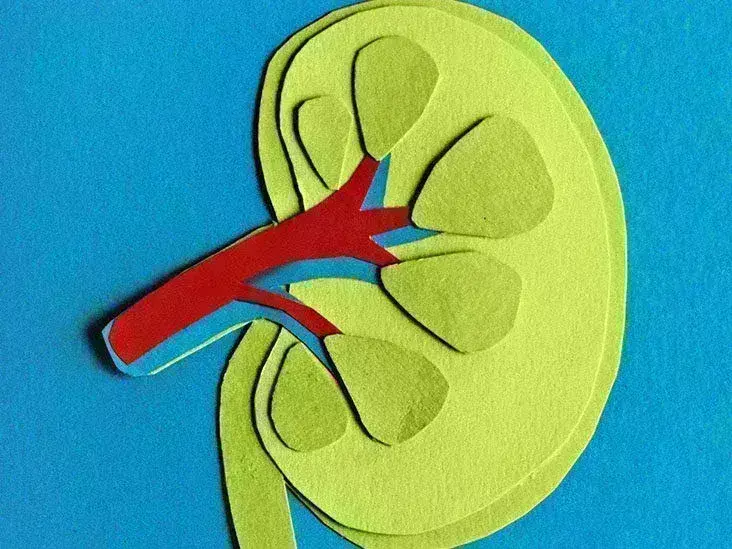- Home
- Medical news & Guidelines
- Anesthesiology
- Cardiology and CTVS
- Critical Care
- Dentistry
- Dermatology
- Diabetes and Endocrinology
- ENT
- Gastroenterology
- Medicine
- Nephrology
- Neurology
- Obstretics-Gynaecology
- Oncology
- Ophthalmology
- Orthopaedics
- Pediatrics-Neonatology
- Psychiatry
- Pulmonology
- Radiology
- Surgery
- Urology
- Laboratory Medicine
- Diet
- Nursing
- Paramedical
- Physiotherapy
- Health news
- Fact Check
- Bone Health Fact Check
- Brain Health Fact Check
- Cancer Related Fact Check
- Child Care Fact Check
- Dental and oral health fact check
- Diabetes and metabolic health fact check
- Diet and Nutrition Fact Check
- Eye and ENT Care Fact Check
- Fitness fact check
- Gut health fact check
- Heart health fact check
- Kidney health fact check
- Medical education fact check
- Men's health fact check
- Respiratory fact check
- Skin and hair care fact check
- Vaccine and Immunization fact check
- Women's health fact check
- AYUSH
- State News
- Andaman and Nicobar Islands
- Andhra Pradesh
- Arunachal Pradesh
- Assam
- Bihar
- Chandigarh
- Chattisgarh
- Dadra and Nagar Haveli
- Daman and Diu
- Delhi
- Goa
- Gujarat
- Haryana
- Himachal Pradesh
- Jammu & Kashmir
- Jharkhand
- Karnataka
- Kerala
- Ladakh
- Lakshadweep
- Madhya Pradesh
- Maharashtra
- Manipur
- Meghalaya
- Mizoram
- Nagaland
- Odisha
- Puducherry
- Punjab
- Rajasthan
- Sikkim
- Tamil Nadu
- Telangana
- Tripura
- Uttar Pradesh
- Uttrakhand
- West Bengal
- Medical Education
- Industry
Sleep duration and leg restlessness associated with increased risk of CKD

According to the 2019 Global Disease Burden (GDB), the age-standardized prevalence and death rate for Chronic Kidney Disease (KD) are 8724 and 15.9 per 100,000 people respectively. The percentage change in prevalence and death between 1990 and 2017 was 1.2% and 2.8%, respectively [1]. Thus, given the increasing prevalence of CKD, identifying potential risk factors can be helpful in preventing it.
Sleep duration and leg restlessness may be associated with an increased likelihood of CKD suggests a new study published in the BMC Nephrology
The relationship between sleep duration and chronic kidney disease (CKD) has received relatively little attention in the Kurdish community. Considering the ethnic diversity of Iran and the importance of the Kurdish community, the present study investigated the association between sleep parameters and CKD among a large sample of Iranian-Kurds.
Methods
This cross-sectional study was conducted among 9,766 participants (Mage: 47.33, SD = 8.27, 51% female) from the Ravansar Non Communicable Disease (RaNCD) cohort study database. Logistic regression analyses were applied to examine the association between sleep parameters and CKD.
Results
Results showed that prevalence of CKD was detected in 1,058 (10.83%) individuals. Time to fall asleep (p = 0.012) and dozing off during the day (p = 0.041) were significantly higher in the non-CKD group compared to the CKD group. Daytime napping and dozing off during the day in females with CKD were significantly more than males with CKD. A long sleep duration (> 8 h/day) was associated with 28% (95% CI: 1.05, 1.57) higher odds of CKD compared to normal sleep duration (7 h/d), after adjusting for confounding factors. Participants who experienced leg restlessness had a 32% higher probability of developing CKD than those who did not experience leg restlessness (95% CI: 1.03, 1.69).
Results suggest that sleep duration and leg restlessness may be associated with an increased likelihood of CKD. Consequently, regulating sleep parameters may play a role in improving sleep and preventing CKD.
Reference:
Hemati, N., Shiri, F., Ahmadi, F. et al. Association between sleep parameters and chronic kidney disease: findings from iranian ravansar cohort study. BMC Nephrol 24, 136 (2023). https://doi.org/10.1186/s12882-023-03177-3
Dr. Shravani Dali has completed her BDS from Pravara institute of medical sciences, loni. Following which she extensively worked in the healthcare sector for 2+ years. She has been actively involved in writing blogs in field of health and wellness. Currently she is pursuing her Masters of public health-health administration from Tata institute of social sciences. She can be contacted at editorial@medicaldialogues.in.
Dr Kamal Kant Kohli-MBBS, DTCD- a chest specialist with more than 30 years of practice and a flair for writing clinical articles, Dr Kamal Kant Kohli joined Medical Dialogues as a Chief Editor of Medical News. Besides writing articles, as an editor, he proofreads and verifies all the medical content published on Medical Dialogues including those coming from journals, studies,medical conferences,guidelines etc. Email: drkohli@medicaldialogues.in. Contact no. 011-43720751


